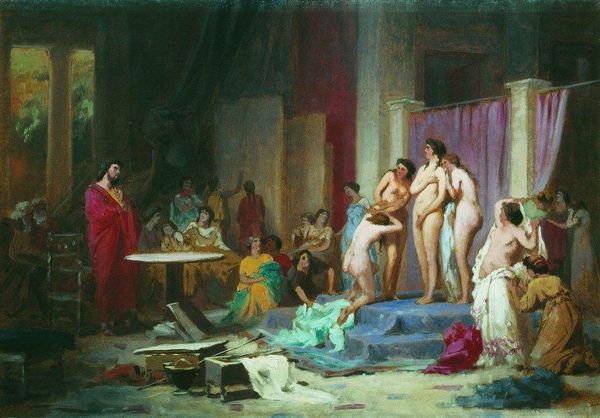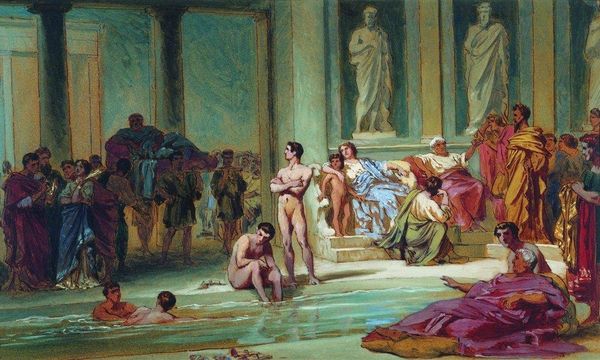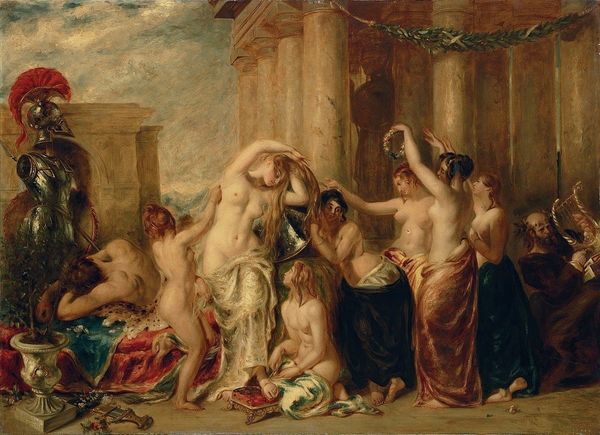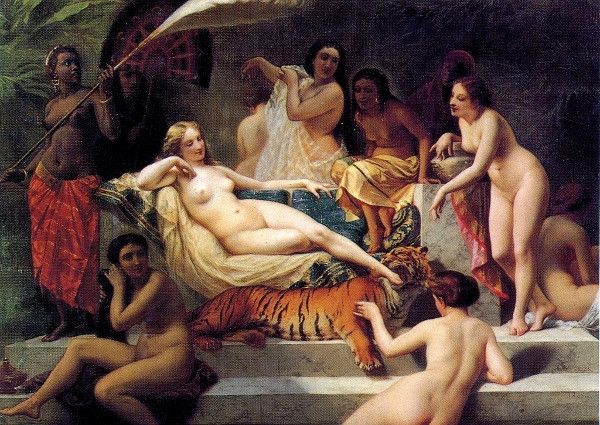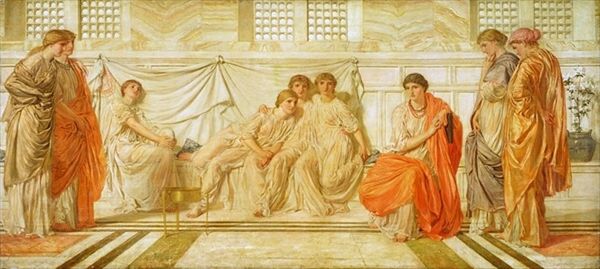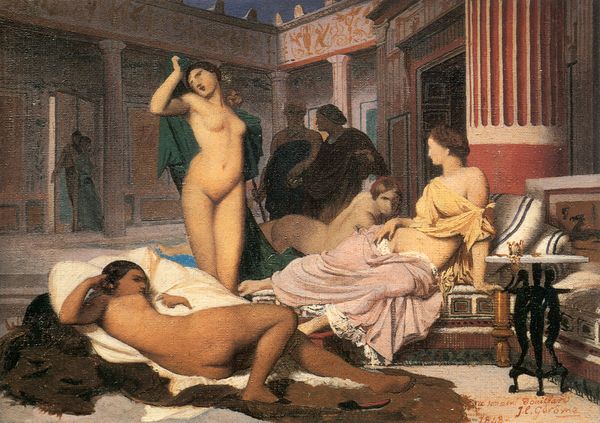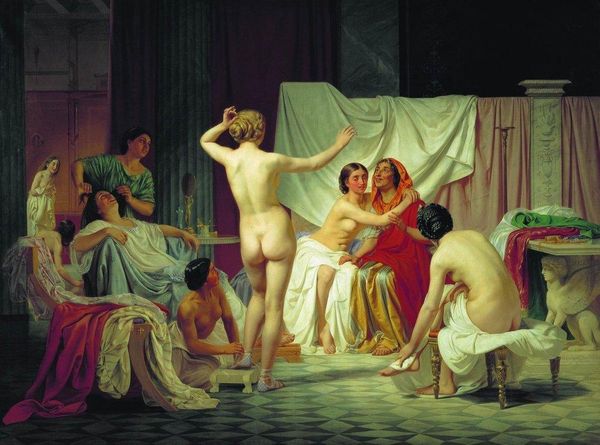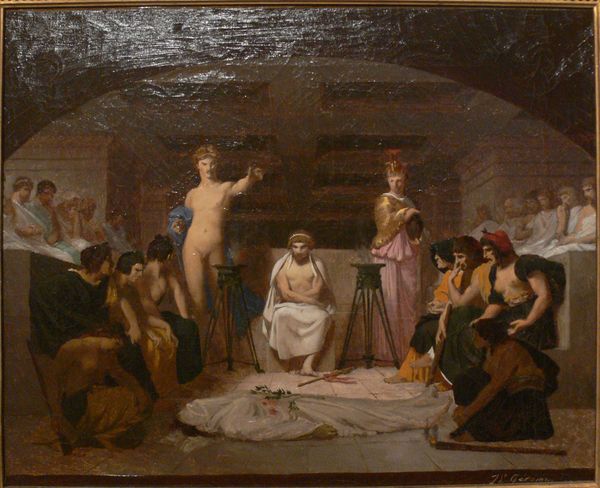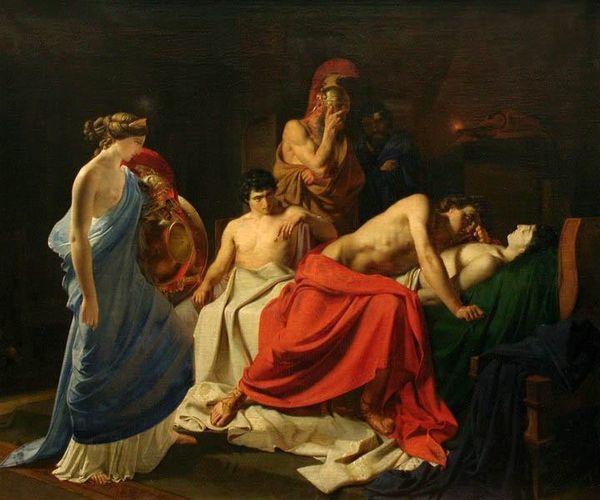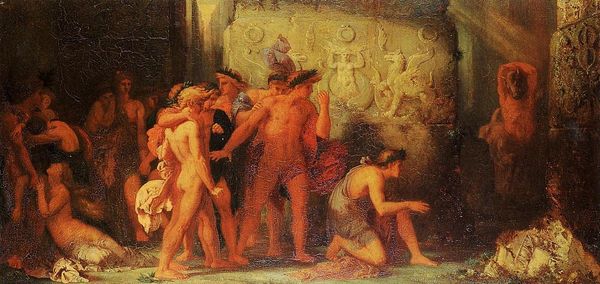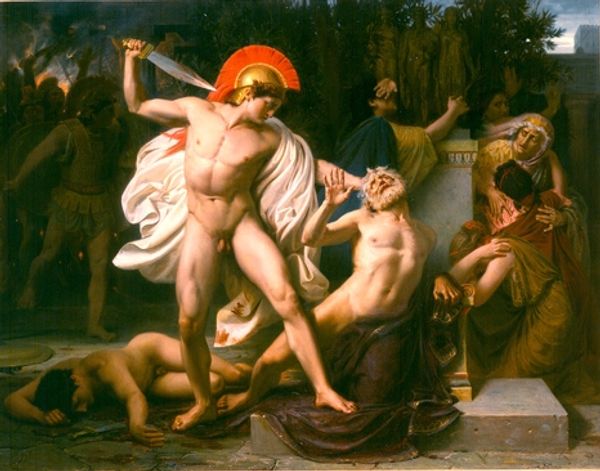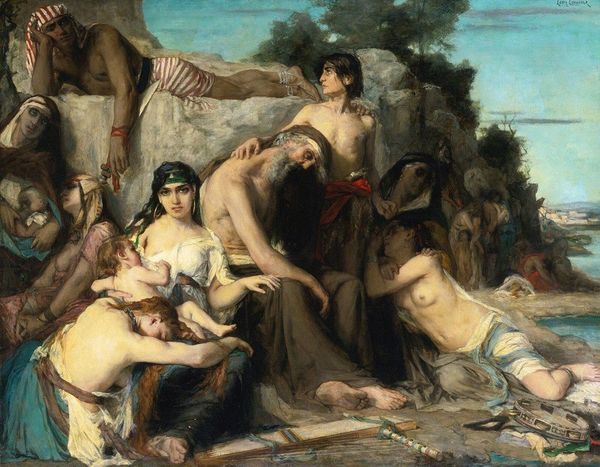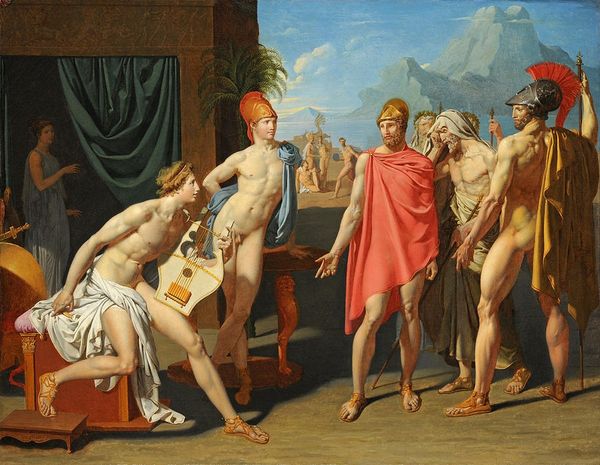
Copyright: Public domain
Curator: So, here we have Fyodor Bronnikov’s "Private Baths in Pompeii" painted in 1868. Looking at it, what catches your eye first? Editor: Well, initially, it feels like a daydream. This hazy atmosphere, like a humid, sun-drenched morning, sort of invites you into its steamy embrace. There's a quiet intimacy here, wouldn't you say? Curator: Absolutely. Bronnikov, working within the Academic art tradition, offers us a glimpse into the social rituals of bathing, but he does so through a distinctly male gaze and romantic lens. Considering its production within 19th-century Russia, can we really divorce the sensual display of bodies from notions of power and empire, orientalism? Editor: Good point. I’m caught between the timeless, almost mythical quality he achieves, and the potentially problematic aspects of romanticizing leisure and class within such a specific historical setting. Does the light seem theatrical to you, as if these women are performing in a tableau? Curator: Exactly! The work borrows heavily from history painting and genre painting traditions, crafting a scene laden with allegorical suggestions of Roman decadence. This reading suggests an intended moral commentary, contrasting supposed Roman licentiousness with a vision of 'pure' Russian morality. What impact do you feel that may have on modern viewers? Editor: I feel... conflicted. The painting offers a voyeuristic view, undeniably. But it also invites curiosity about everyday life in a vanished civilization. I guess for me, the pull comes from pondering all of the women here, as individuals. It's problematic and thought-provoking, that's for sure. Curator: I think that complexity speaks to why the piece continues to engage us. Bronnikov’s work acts as a bridge, revealing cultural obsessions through art historical movements that continue to resonate and require critical consideration in the current day. Editor: Well said! For me, it also confirms the transformative power of art—it may start conversations, even uncomfortable ones, forcing us to reconsider what we truly value and how we see each other.
Comments
No comments
Be the first to comment and join the conversation on the ultimate creative platform.
